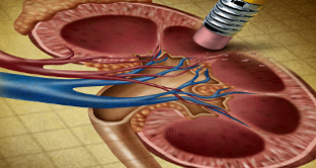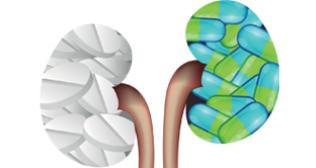
Types of Neurological Diseases
The nervous system is made up of the brain, spinal cord, and nerves which together control the entire working of the body. Any malfunctioning of any part of the nervous system can result in trouble moving, swallowing, speaking, breathing, or even learning. Problems with memory, senses, and mood have also been reported. Neurological disorders affect the brain, the spinal cord, and the nerves that are found throughout the body and can result in a range of symptoms.
Fortis Hospital Kalyan has a well-equipped and highly trained neurology and neurosurgery department to deal with some of the most complex cases and diseases. Our reputed team of doctors and medical staff ensures that you receive timely and appropriate diagnosis and treatment that can guide you back into your routine lifestyle within no time.
You might have noticed that you or a loved one may be experiencing some of the common symptoms like headaches regularly, but what causes these neurological disorders? Such dysfunction can be due to extremely diverse reasons. The spinal cord and the brain are structured by numerous membranes that are vulnerable to force and external pressure. These nerves that are located deep under the skin are prone to damage. Neurological disorders range from affecting a single neuron to sometimes an entire neurological pathway. Even the slightest disturbance to the structural pathway of a neuron results in major dysfunction.
There are currently more than 600 different types of neurological disorders affecting humans with symptoms ranging from mild to moderate and at times severe.
Tumours
Benign
These are tumours that are not cancerous and do not invade nearby tissues.
Malignant
These tumours are made up of cancerous cells and spread rapidly to other tissues.
Seizure disorders
Grand mal seizures
These seizures cause violent muscle contractions and involve loss of consciousness.
Petit mal seizures
The seizures are more common in children than in adults and involve sudden brief lapses in attention that could last for a few seconds.
Developmental disorders
Inherited metabolic disorders
These disorders are also called inborn errors of metabolism and are inherited due to a defective gene that results in enzyme deficiency.
Down syndrome
Also known as Trisomy 21, this genetic disorder causes developmental and intellectual delays due to an abnormal cell division.
Toxic chemicals
Toxicity occurs when exposed to certain natural or man-made toxic substances that could alter the usual activity of the nervous system.
Degenerative disorders
Parkinson’s disease
This is a disorder of the central nervous system (CNS) that affects mostly movement and causes tremors. Symptoms of this disease often include tremor which begins in one hand, stiffness, loss of balance, and slow movements.
Huntington’s disease
This disease starts when a person is in his 30s or 40s and is an inherited condition in which nerve cells present in the brain disintegrate over time.
Alzheimer’s disease
This is a progressive neurodegenerative disease that destroys memory and causes degeneration of important mental functions.
Multiple Sclerosis
This disease results in nerve damage due to the immune system that eats the protective covering of the nerves and eventually disrupts the communication between the brain and the body.
Facial pain and headaches
Headache
This is a painful sensation that can be sensed in any region of the head that can be sharp or dull and could be combined with other symptoms.
Migraine
Migraines are headaches of different intensities and are preceded by warning symptoms and triggers such as certain food and drinks, stress, and hormonal changes.
Cluster Headache
These headaches occur in clusters and last from weeks to months but are also followed by extended periods of relief.
Raised intracranial pressure
Increasing pressure inside the skull can be caused due to brain injury or any other medical condition. This is a very dangerous condition and the pressure can also injure your brain and spinal cord.
Trigeminal Neuralgia
This an excruciatingly painful condition that affects the trigeminal nerve in the face.
Cerebrovascular accidents
Hemorrhagic stroke
A medical condition in which there is leakage inside the brain due to a ruptured blood vessel.
Neurological infections
Infections in the brain can be caused due to bacteria and viruses and some of the most common forms of such infections are encephalitis and meningitis.
Some neurodegenerative conditions lead to nerve damage, traumatic injuries which can lead to permanent disability and death, these conditions and damages are irreversible.
Fortis Kalyan as some of the best neurologist and neurosurgeons and a dedicated team which ensures a comprehensive and patient-centric approach towards the management and treatment of every patient.
Categories
Clear allMeet the doctor

- Neurosurgery | Neurosurgery
-
5 Years
-
1400



















